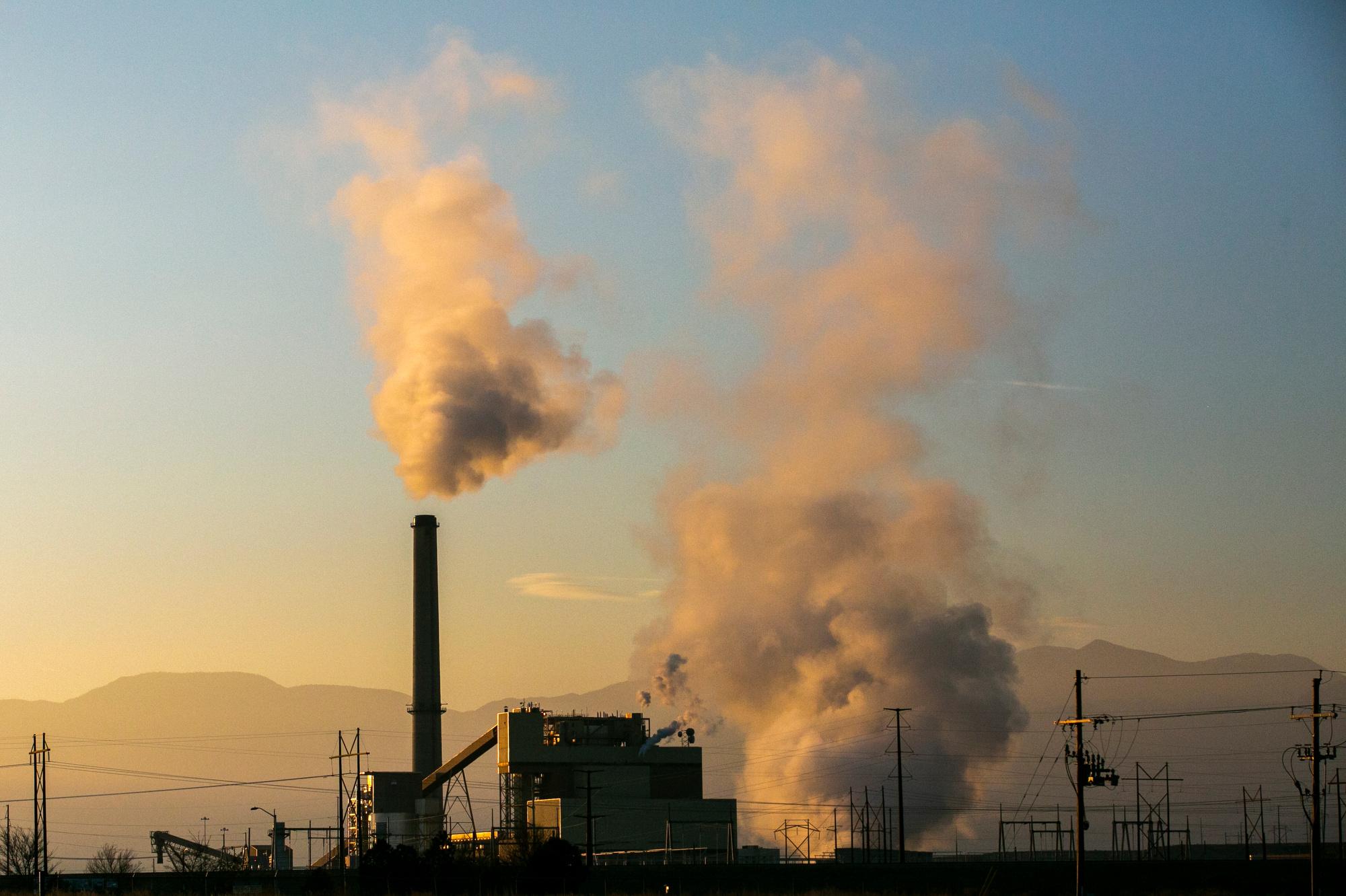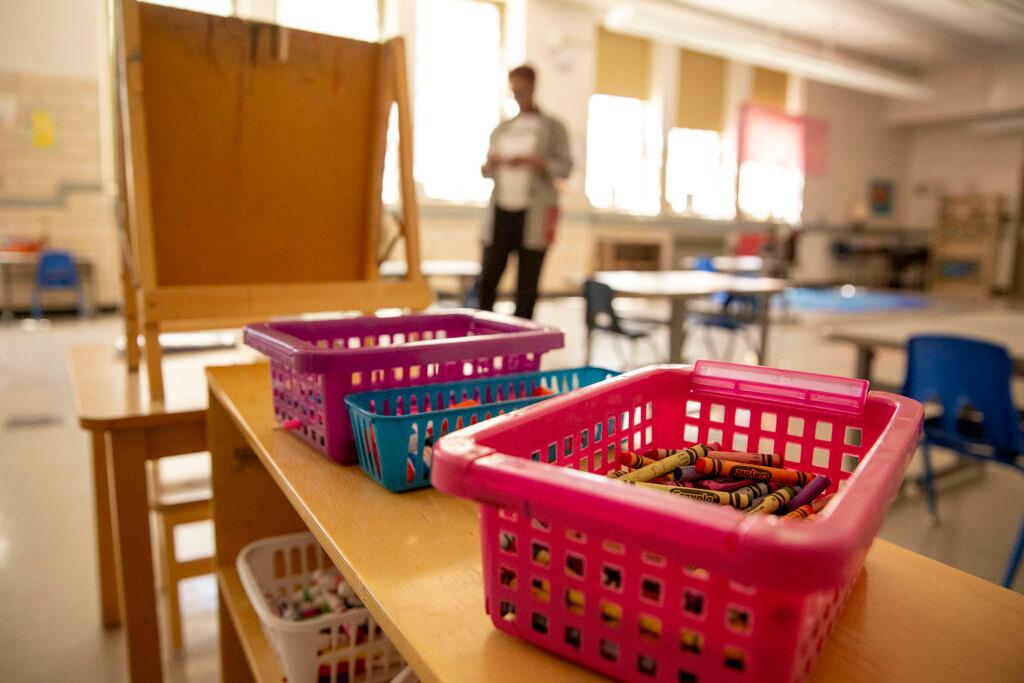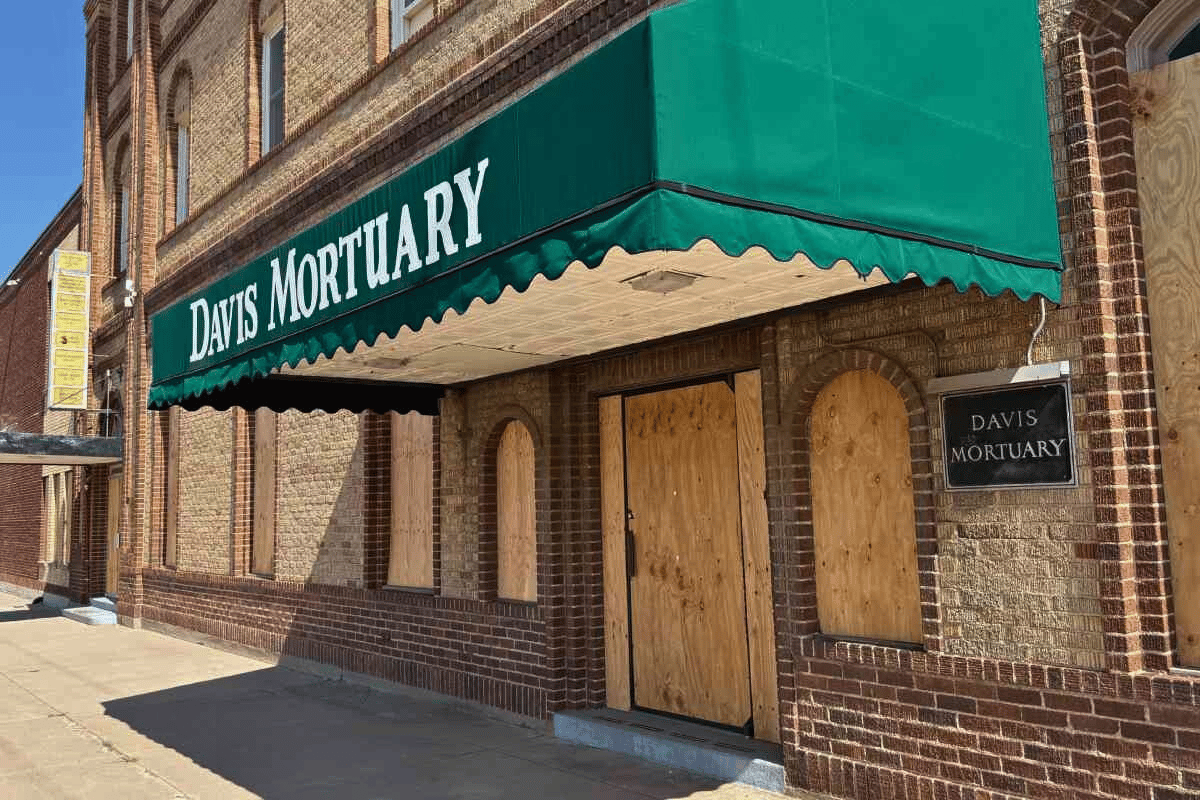
President Donald Trump's most controversial executive order to date -- a ban on travel to the U.S. by refugees and citizens of seven mostly Muslim countries -- is in the hands of a federal appeals court.
The judges will decide whether to uphold a Washington judge's decision to suspend the order and allow continued travel into the United States, or to side with the Trump administration and enforce the ban on travel by refugees for 120 days, and all citizens of the seven Muslim-majority countries for 90 days.
In Colorado, leaders of the state's largest mosque, the Colorado Muslim Society, have been listening to their congregation's questions and fears about the order since it was signed by President Trump. Mosque spokeswoman Iman Jodeh says the society's members worry about family members stranded overseas by the order, and their own ability to travel back to their homelands to see relatives.
Interview Highlights With Iman Jodeh
On how the congregation is reacting:
"There’s one gentleman that has really stood out that my heart goes out to and obviously, for his safety and privacy, I won’t disclose his name but he’s a part of our congregation and he is a refugee from Yemen and he doesn’t have the financial capabilities to go back to Yemen. So he is here but the problem is that his family, his five children are still in Yemen and his wife was recently killed in the war in Yemen. So like I said, he doesn’t have the financial means to even bring his children, and with the ban, that’s not even an option anymore. So his children are literally stuck in a war-torn country as minors without their mother."
On reactions now, compared to after the Sept. 11, 2001 terrorist attacks:
"I think after 9/11, the nation was in shock. You know, this was an attack on our soil and it’s a lot different than putting a policy ban, you know, in effect. And on 9/11, people banded together in the name of peace, in the name of moving forward, in the name of, you know, solidarity. I know immediately following 9/11, my father organized a peace circle around the mosque and so many people showed up that they circled the mosque three times, holding hands, which is huge. I mean, it’s a very large campus. But in contrast to what we’re seeing today, we’re seeing a lot of, again, non-Muslims standing in solidarity with Muslims but we’re seeing – and this is the difference. It’s a sea change. We’re actually seeing people coming out to say 'not on my watch.'"
Read the transcript:
Ryan Warner: This is Colorado Matters from CPR News. I’m Ryan Warner. A federal appeals court will hear arguments later today on President Donald Trump’s controversial travel ban. The executive order has generated a lot of reaction in Colorado -- from approval to fear. In a few minutes, we’re going to hear from Weld County, where President Trump won nearly 60 percent of the vote in November and where many people support the president’s move. First, let’s hear from Colorado’s largest mosque, the Colorado Muslim Society. Many members of the congregation have ties to the countries included in the order, and I’m joined by the mosque’s spokeswoman, that’s Iman Jodeh. Welcome to the program. Iman Jodeh: Thank you so much. RW: The order suspends travel by all refugees to the U.S. for 120 days at least and it puts a 90-day hold on travel by anyone from seven countries where Muslims are in the majority-- Iraq, Syria, Iran, Sudan, Libya, Somalia and Yemen. Give me an example of someone in your congregation who is directly affected. IJ: Yeah, it’s been really tough to kind of watch a lot of this unfold. There’s one gentleman that has really stood out that my heart goes out to and obviously, for his safety and privacy, I won’t disclose his name but he’s a part of our congregation and he is a refugee from Yemen and he doesn’t have the financial capabilities to go back to Yemen. So he is here but the problem is that his family, his five children are still in Yemen and his wife was recently killed in the war in Yemen. So like I said, he doesn’t have the financial means to even bring his children, and with the ban, that’s not even an option anymore. So his children are literally stuck in a war-torn country as minors without their mother. RW: Were they on the verge of coming to the U.S. or is it just that they can't now start the proceedings with much hope? IJ: I think he was kind of in, both. He was kind of, you know, starting the process but everything’s been halted and he cannot even move forward with bringing his children to safety and security under his guardianship in the United States, even as a parent, because of the ban. RW: When you’ve talked to other members of the congregation here in Denver since the order was issued, what are their concerns? IJ: I think there’s a few different concerns. One, I think the simple concern of uncertainty is breeding a lot of fear but I don’t want it to seem as if the fear is as palpable as many think. There’s a huge movement among Muslims both in Colorado and domestically with, again, throughout the United States that are banning together whether they are refugees, they’re immigrants, they’re naturally born Muslims, to say we are standing up against this and we will not allow for this and we will not allow our civil liberties to be, you know, offended. And so – but hand-in-hand with that, we have a lot of non-Muslims standing up with us, and to have that backing is awe-inspiring. RW: As of now, a federal judge in Washington state has suspended the order, meaning it isn’t being enforced and so some of the people who would otherwise be affected are entering the country. As we said, there is a hearing later today in California on the order. Is that easing people’s concerns? IJ: It is a little bit. And I think it’s proof to, you know, what our constitution truly says you know, what we are truly allowed to do in this democracy; that to, you know, pick people out based by their race, their religion, where they come from, that is not who we stand -- or what we stand for as Americans or in the United States. RW: I think the administration would say that this is not necessarily specific to one faith that the refugee ban is broader than that though there is some mention in the executive order of favoring some minority faiths if travel from these countries resumes. You are a lay leader of the Colorado Muslim Society and you run an agency that promotes relationships between the U.S. and the Middle East. I want to say that your father Mohammed Jodeh helped found the Muslim society? IJ: He did. RW: You were born here in the United States and the Muslim community has been at the center of controversy before, I think back, for instance, to September 11th, 2001. IJ: Sure. RW: Can you contrast that period of time to this one? IJ: Sure. RW: And what I heard you say in terms of the more recent events is that you think perhaps that the Muslim community's found its voice. Do you think that differs from after 9/11? IJ: I do. I think after 9/11, the nation was in shock. You know, this was an attack on our soil and it’s a lot different than putting a policy ban, you know, in effect. And on 9/11, people banded together in the name of peace, in the name of moving forward, in the name of, you know, solidarity. I know immediately following 9/11, my father organized a peace circle around the mosque and so many people showed up that they circled the mosque three times, holding hands, which is huge. I mean, it’s a very large campus. But in contrast to what we’re seeing today, we’re seeing a lot of, again, non-Muslims standing in solidarity with Muslims but we’re seeing – and this is the difference. It’s a sea change. We’re actually seeing people coming out to say 'not on my watch.' If Muslims will have to register on a Muslim registry, then I will register as well even though I’m not Muslim. If Muslims have to go to an internment camp, I’m going to sign the Ralph Carr bill that’s going to say “That’s absolutely not going to happen in Colorado.” RW: Ralph Carr is a former Colorado governor who spoke up during the time of Japanese-American internment. IJ: Right. And Joe Salazar is drafting an amazing bill that essentially says, you know, Colorado resources will not go towards any kind of Muslim registry or internment camp. RW: He's the Democratic state lawmaker. You’re listening to Colorado Matters, I’m Ryan Warner and we’re speaking with a lay leader at the Colorado Muslim Society. It’s the state’s largest mosque. That is spokeswoman Iman Jodeh. In a few minutes, we’ll hear a report from Greeley where CPR News spoke to several people who support President Trump’s executive order. One person we met at a Republican club was Samuel Adams. Samuel Adams: We have no responsibility to people in other countries that ensure their safety and their security. RW: Your parents, I think, were Palestinian refugees. IJ: They are, yes. RW: What’s your response to that? IJ: Well, the fact of the matter is that the United States gives ample amount of foreign aid to many countries for their security. And if we go on, you know, with that kind of mentality, then this comment is in fact false. The other thing is -- RW: There are some who would like to see that kind of aid changed though. IJ: Sure. Absolutely. The other reality is that, you know, if he is worried about the people coming into this country, the amount of vetting that refugees receive on the other end before they even reach our shores is so extensive; it can go into six months sometimes. So much so that that’s, you know, ten times more than what they would receive on our receiving end or in our airports. So people need to understand that by the time they get here, they have been vetted to the extreme amount, and they end up being, you know, great members of society that contribute to the fabric of this nation. RW: At this same Republican meeting, we heard from a retired financial executive named Lee Korins who pointed out that this doesn’t stop travel forever. It’s a 120-day suspension while the new president and his team make sure that they’re taking every possible step to ensure people coming in don’t pose a terrorist threat. Here’s Lee Korins. Lee Korins: To me, it is nothing more than somebody who was taking over as chief executive to study what is going on up to that point. A hundred and twenty days is a reasonable period of time for somebody to say, “How have you been vetting these people?” RW: Which obviously differs from your picture of refugees in the vetting process. He’s saying, “Take some time to review. It’s not a permanent state.” IJ: Sure. And that would be okay if we weren’t hearing accounts of even naturally born Muslims being held at borders. I travel for work and I go to the Middle East often. And with the risk of having being held on in New York, in Atlanta or any place like that, to me, is unconstitutional. RW: Are there more anti-Muslim acts in the community that you are hearing about? IJ: Thankfully in Colorado, we are not receiving a lot of those acts. However, throughout the United States, unfortunately, there is an increase in retaliation whether it’s graffiti, phone calls or any kind of backlash out of the election. RW: But you must feel some relief that you haven’t seen it locally? IJ: Absolutely. RW: We’ve seen some incidents involving U.S. citizens, people who’ve lived here their whole lives, becoming radicalized and engaging in terrorism. Are you concerned that some Muslims already in the U.S. might become so frustrated by an order like this that it radicalizes them? IJ: You know, I think it’s always a risk, you know, but those are so isolated and so minimal. But it’s important to remember that, you know, that can happen in any society regardless of the country, regardless of the administration. And, you know, so far, we’re blessed to say that that hasn’t happened a lot and we have worked very closely with law enforcement to make sure that it’s mitigated and that it’s essentially nipped in the bud before it gets to a point that it can’t be handled. RW: But do you think that the executive order might be a radicalizing tool? IJ: You know, it might be but, you know, to be honest, it’s hard to tell and the Colorado Muslim Society along with other Muslim communities throughout the nation have a heightened awareness of their communities and know how to react to those kinds of things. RW: You talked about the connection between the Muslim law enforcement just a moment ago, and indeed, President Trump said on the campaign trail that Muslims who come into the country “have to report the problems when they see them”. What did you make of that? IJ: You know, it’s funny because a lot of mass shootings in the United States are done by white Christian men and we barely ever, if ever, go to a church and ask them to or be accountable for their actions. And I asked you the same question is, why are Muslims or mosques accountable for things like this? And we shouldn’t be. Like I said, these are rogue and isolated events. Having said that, you know, the Muslim communities do work very closely and we do very much value those relationships because we understand that not only is it the safety of Americans but it’s our safety as well because we are Americans. RW: Thank you for being with us. IJ: Thank you so much for having me. RW: Iman Jodeh is a spokesman for the Colorado Muslim Society, the state’s largest mosque. She’s also executive director of Meet The Middle East which promotes relationships between the U.S. and the Middle East through education and through travel. |
Related:









